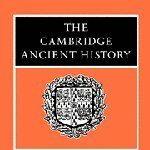
Ebook Info
- Published: 2002
- Number of pages: 536 pages
- Format: PDF
- File Size: 6.32 MB
- Authors: John Boardman
Description
From the epic poems of Homer to the glittering art and architecture of Greece’s Golden Age, to the influential Roman systems of law and leadership, the classical Greek world established the foundations of our culture as well as many of its most enduring achievements. Now, in this vivid volume, readers can embrace the spirit of the classical world, from the eighth to the first centuries B.C., a period unparalleled in history for its brilliance in literature, philosophy, and the visual arts. This work also treats the Hellenization of the Middle East by the monarchies established in the area conquered by Alexander the Great. The editors, all celebrated classicists, intersperse chapters on political and social history with sections on literature, philosophy, and the arts, and reinforce the historical framework with maps and historical charts. Moreover, the contributors–thirty of the world’s leading scholars–present the latest in modern scholarship through masterpieces of wit, brevity, and style. Together with hundreds of excellent illustrations, these entries provide both a provocative and entertaining window into our classical heritage.
User’s Reviews
Editorial Reviews: Review `From reviews of The Oxford History of the Classical World: the book is truly excellent the standard of the contributions is extraordinarily high ‘ Observer` this book has no equal and would be difficult to better ‘ Books and Bookmen About the Author John Boardman is Professor Emeritus of Classical Archaeology and Art, Lincoln College, Oxford. Dr Oswyn Murray is Fellow and Tutor in Ancient History at Baliol College, Oxford.Dr Jasper Griffin is Tutor in Ancient History at Baliol College, Oxford.
Reviews from Amazon users which were colected at the time this book was published on the website:
⭐The Oxford History of Greece and the Hellenisic World is a perfect primer for ancient Greek studies on history, literature, philosophy and art, but it is also a great read for the casual history and literature buff (which is the reason I read it!) Spanning from the Archaic Period, with Homer and Hesiod, through the Classical period with Aeschylus and Euripides, to the curious Hellenistic world: a world of three empires (The Antigonids of Macedon, the Seleucids of Western Turkey through to Afghanistan, and the Ptolemies of Egypt) where the Roman influence was penetrating an already crumbled empire unable to defend itself against Roman cultural and military pressures. The Greeks still adopted the slow, inflexible, easily flanked and routed phalanx – no match for the Roman Legions which would soon topple almost all of the three empires.I must make special mention of certain essays. (This volume is a collection of essays by experts in their fields: as such, some sections are better than others.) The histories are absolutely brilliant, enlightening and fascinating. The discussion of literature is a mixed bag, however. One of my favourite essays is one on Homer’s poetry. It must be read to be believed – wonderful stuff. However, the chapter on Elegaic and Lyric Poetry I found to be inaccessible. I study English, and a lot of the discussion went far too deep, far too fast, and, coupled with a piecemeal historical background to be considered, the chapter turned to dust. It is certainly worth reading, but it by far the weakest chapter. The chapters on philosophy were, in fact, my favourite – sitting right up top with Homer. These chapters were probably the only truly “riveting” moments in the book, because the themes they deal with are so large, and the evolution so fascinating. The sections on mythology and religion are solid and informative. Thankfully art and architecture are not neglected, and the chapters concerning their evolution and influence are interesting, if not a little bit too far away from my sphere of interest. The depiction of the various deities and the like, however, was great and complemented the religious chapters well.The maps and the historical chart (detailing events both social and cultural) are the best I have ever seen in a single paperback volume. The selected readings at the end of each chapter are both comprehensive and accessible, so full marks there. It is a small pity that there isn’t a glossary of useful greek terms, but that is of little consequence and does nothing to tarnish this brilliant gem.It pains me a bit to see that this book has only one review (now two) to it’s name. It deserves to be read. As is said in the introduction of this book: “To see that such things can be true of people whom in some ways we find intelligible and recognizable can help to deliver us from the tyranny of the present, from the assumption that our own habits of action and thought are really inescapable, and from the idea that there are no alternatives. That is the liberating power of the past.” (Boardman, p.8)The past liberates us from ourselves and should not be forgotten. This is something I passionately believe, and I am not even a historian.It is needless to say but I will say it anyway: buy this book and any other Oxford history you can find – or Cambridge history for that matter – and absorb it all. The details are not important the first time through, just withhold the themes and the power that comes from reading about a culture alive only in museums and through fragmented customs and throwbacks; of a people extinct or bred out of existence; and of a history lived before our current means of measuring time existed (this was long before the advent of the Julian Calender.)I am rambling.Buy. Read. Enjoy.
⭐Okay, let’s start by making a disclaimer: this is an OLD book. It was first issued in 1986 as part of THE OXFORD HISTORY OF THE CLASSICAL WORLD, and it does show its age. It obviously hasn’t been updated because it still contains references to the Union of Soviet Socialist Republics as being a current government founded on democratic principles!Putting its age aside, it’s an okay read. The book is divided into articles detailing specific areas of interest: history, philosophy, epic poetry, culture, domestic life, etc. In other words, it’s a survey of the Greek world. My problem is that the sections dealing specifically with history are so threadbare, and some very important topics are ignored completely.There is no chapter on Minoan civilization, or even references to it, and the Mycenaean period is also absent. Why it starts with the Archaic period is not made clear. Perhaps in 1986 not enough was known to reconstruct either civilization adequately. Furthermore, discussion of pederasty is almost nonexistent. One chapter on poetry falsely states that pederasty wasn’t a subject treated in epic poetry, when “Iliad” clearly portrays a love relationship between Achilles and Patroclos (though not explicitly sexual). Also, Haphaestian, Alexander the Great’s gran amour isn’t even mentioned!The worst part of the book is Simon Price’s reliance on Biblical literature to reconstruct areas of the Hellenistic period. There aren’t many modern historians who treat the Bible as anything other than folklore, and rightly so. Equal skepticism is given to Herodotus, Thucydides, Polybius, Arian, etc., because they didn’t use scientific methods to examine history. However, this book relies heavily on their work as well.The essays on culture are much better than the essays on history. I particularly enjoyed the chapters on philosophy and “Life and Society.”I imagine this book would be ideal for a semester length class on Greece, but there are better survey history books than this one. I think it would have been better if the contributors had opted for a narrative structure closer to that used in The Oxford History of Egypt, which was very well done.In conclusion, it’s okay book, even if outdated; but it didn’t live up to my expectations.
⭐I read every page of this long book so I could write this review in earnest. It’s a passable introduction in the guise of an unfocused collection of essays. Look elsewhere (see below).Each essay falls short of covering its subject at any depth to satisfy someone who is already knowledgeable. There are 16 of these essays. Taken as a whole, the length would make it unbearable to the uninitiated while, at the same time, the shallowness offers little to those actually interested in Greece.The individual essays are largely hit or miss. The best are 2-3 on Homer, Hesoid, and Myth; 7-10 on the creative, historical, and philosophical products of the Classical period in Athens; and likewise with 13-15 in regard to the Hellenistic period. Everything else is extremely dry or poorly written, suffering from the above problems.Overally I learned from and enjoyed about half of the essays. However, even if these few essays are worthwhile, there are far better ways to spend your time.For history and culture:The Greeks by KittoFor philosophy and science:A History of Western Philosophy by Bertrand Russell, orEarly Greek Science by G.E.R. LlyodAnd of course, reading the Illiad, Thyucidides, Sophocles, Plato, and Aristotle (especially Poetics and Nichomachean Ethics) firsthand will continue to be one of the best ways one can learn–about Greece or himself.
⭐I love this it will definitely be in my growing collection of Roman / Greek histories. Great value and fast service. Top Mark’s.
⭐I love this book. I’ve owned a physical copy of it for years, but the kindle version is a disaster. The illustrations have been removed and the few maps left in there are unreadable, even on a new kindle. I’m so disappointed.
⭐This book was on our list for classics; I like it but I think some of the chapters are trying to pack in too much so the sentence structure is ridiculous. I found myself having to re-read sections a lot. Great and informative but not clear and concise.
⭐Excellent
⭐Great book
Keywords
Free Download The Oxford History of Greece & the Hellenistic World 2nd Edition in PDF format
The Oxford History of Greece & the Hellenistic World 2nd Edition PDF Free Download
Download The Oxford History of Greece & the Hellenistic World 2nd Edition 2002 PDF Free
The Oxford History of Greece & the Hellenistic World 2nd Edition 2002 PDF Free Download
Download The Oxford History of Greece & the Hellenistic World 2nd Edition PDF
Free Download Ebook The Oxford History of Greece & the Hellenistic World 2nd Edition





